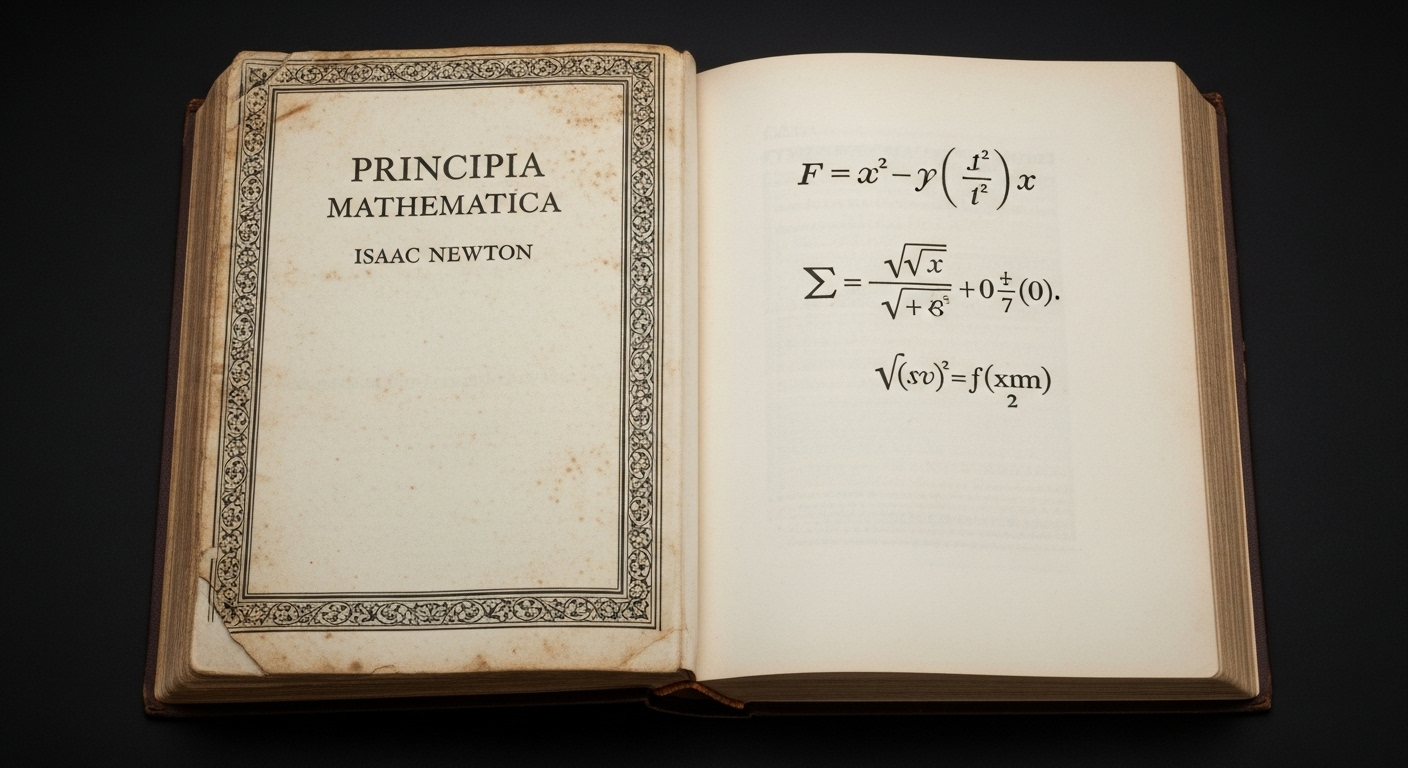
Principia is a Latin book published by Isaac Newton in 1687, and its official title is Philosophiæ Naturalis Principia Mathematica ("Mathematical Principles of Natural Philosophy"). This book is a representative masterpiece in the history of human science that established the foundation of classical mechanics, and became a decisive turning point for the modern scientific revolution.
Main contents and structure
· Consists of 3 volumes (Books)
o Volume 1: Basic mechanics principles such as the laws of motion and mass, force, and momentum
o Volume 2: Fluid mechanics, resistance, and practical applications of motion
o Volume 3: Celestial mechanics and the law of universal gravitation, explanation of the motion of planets and satellites
• Completion of the Scientific Revolution: Principia is evaluated as a work that synthesized and completed the scientific revolution that led to Copernicus, Galileo, Kepler, etc.
• Unification of the laws of nature: It was the first to prove that celestial and terrestrial phenomena can be explained by the same mathematical laws.
• Starting point of modern physics: It had a great influence on numerous scientists including Laplace, Lagrange, and Einstein.
• Combination of experiments and mathematics: It presented a typical example of ‘exact science’ that combined empirical observation and mathematical argument.
Summary
• Principia is a book that mathematically explains the order of the universe and nature through Newton’s laws of motion and the law of universal gravitation.
• It is the greatest scientific work of mankind that laid the foundation of modern science, and its influence continues to this day.
'인공지능 수학' 카테고리의 다른 글
| What is Fermat's Last Theorem? (1) | 2025.07.11 |
|---|---|
| Convergence and Divergence (1) | 2025.07.11 |
| What is quantum mechanics? (0) | 2025.07.10 |
| Tessellation (0) | 2025.07.10 |
| Dimension (1) | 2025.07.09 |



